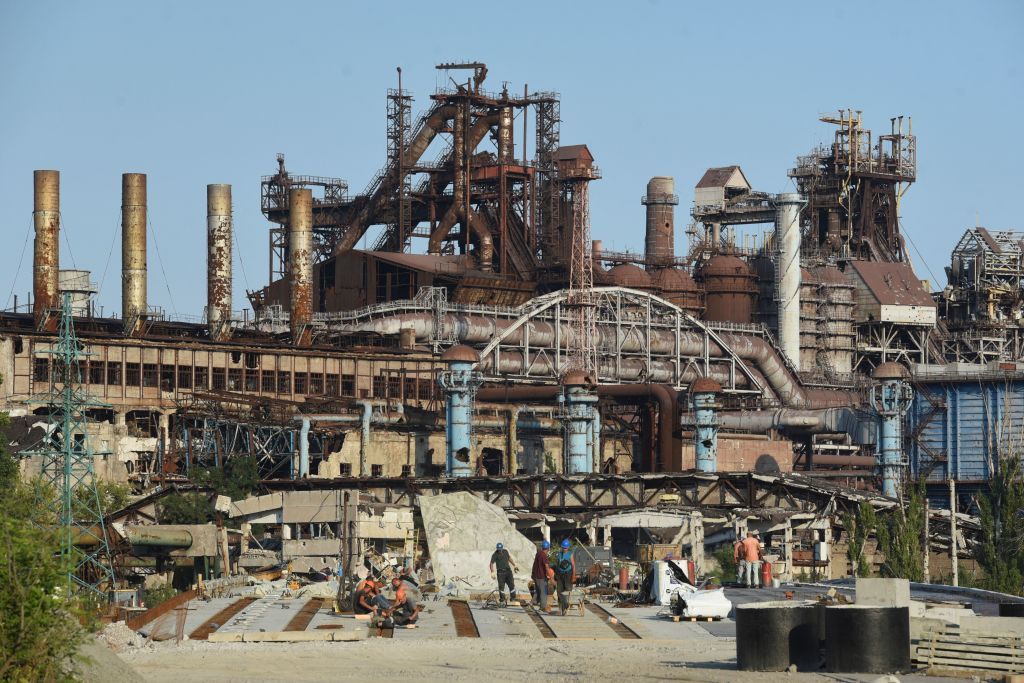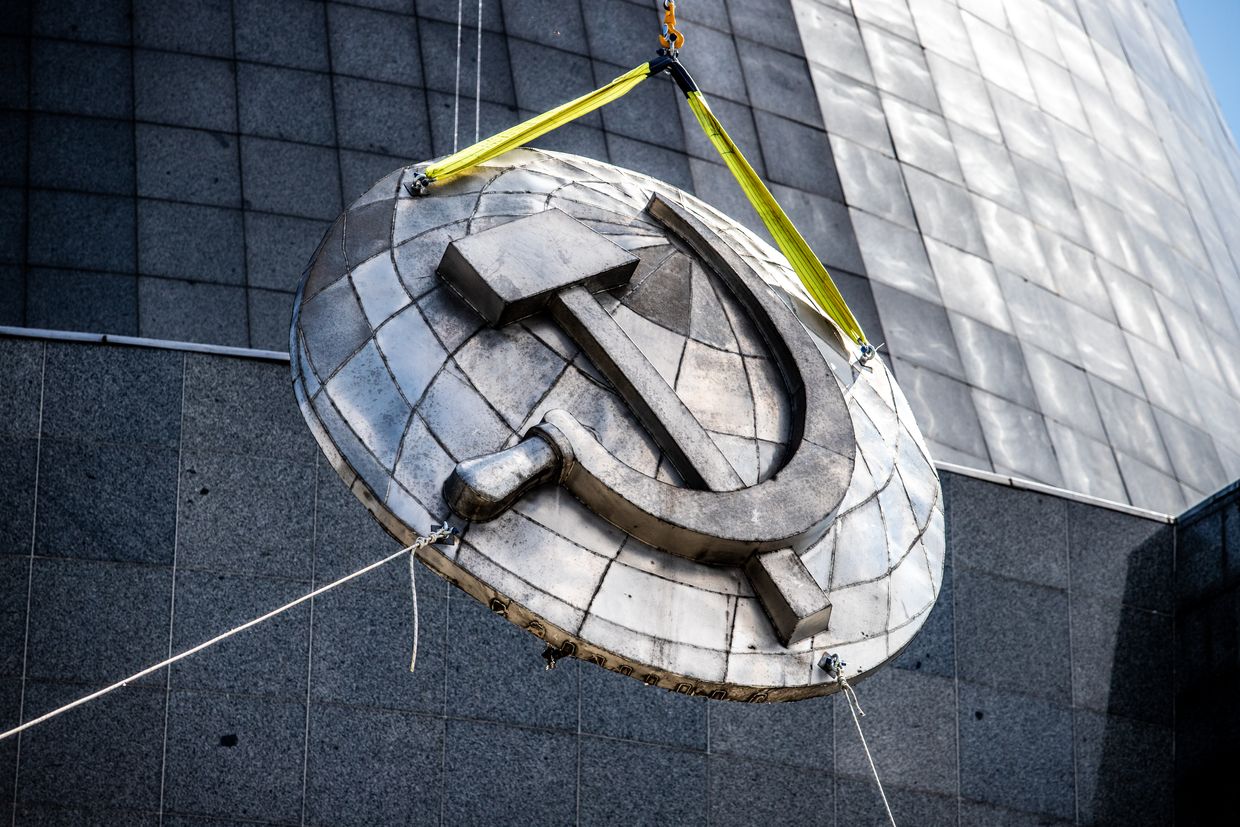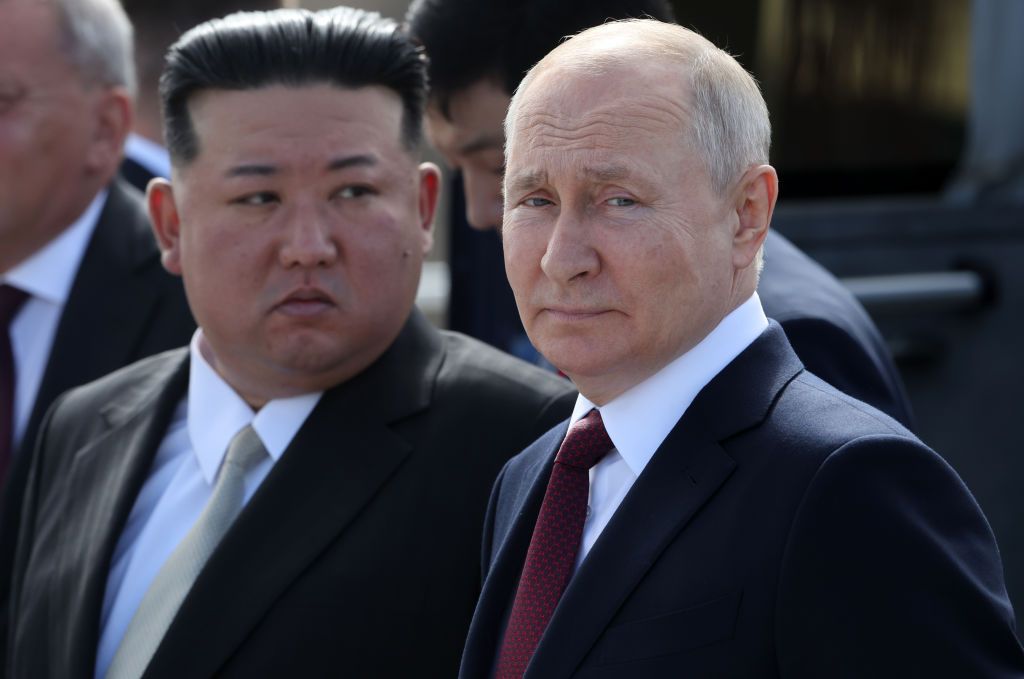Belarus Weekly: Germany permanently deploys troops in Lithuania near border

Germany signs ‘historic’ agreement to permanently deploy 4,800 German troops in Lithuania following Russian aggression against Ukraine. It will be the first German military base abroad since the end of the Second World War.
A Bloomberg report, based on leaked documents, reveals there was a safety incident at a Russian-built nuclear power plant in Belarus in February 2022.
The European Union's 12th sanctions package against Russia includes measures targeting twelve Belarusian military and government officials involved in Russia's full-scale war against Ukraine.
In 2023, Belarus imprisoned 39 journalists, the third largest number worldwide, according to Reporters Without Borders.
The European Parliament passed a resolution in support of Belarusian political prisoners on Dec. 14, demanding their immediate release and highlighting the case of Mikola Statkevich, a veteran Belarusian politician serving his third prison term following politically motivated trials.
Belarusian activist Aliaksandra Kasko, detained when returning from Poland, has been sentenced to 10 years in prison on charges of engaging in ‘extremist’ activities.
Germany to deploy combat-ready brigade in Lithuania, near the border, by 2027
Germany and Lithuania have signed an agreement on the deployment of a permanent German brigade of about 4,800 soldiers near Lithuania’s eastern border with Russia and Belarus, the defense ministries of the two NATO countries announced on Dec. 18.
German Defense Minister Boris Pistorius described the event as “historic,” as it will be the first permanent deployment of German troops abroad since the end of the Second World War.
The core of the brigade will deploy in 2025-2026, and the rest will follow in 2027. Lithuanian lawmaker Laurynas Kasciunas said the country would allocate 0.3% of its GDP over the next several years to help fund the deployment.
There is consensus across the political spectrum about the threat posed by Russia to Lithuania and the consequent need to increase defense spending, said Kasciunas.
The overwhelming majority of Lithuanians (82%) support the permanent German deployment, according to a report published by the Lithuanian Armed Forces on Dec. 19.
Lithuania must be prepared for the “worst scenarios,” said Lithuanian Defense Minister Arvydas Anusauskas, as “Russia remains the main threat to us and NATO.”
Lithuania currently has a German-led reinforced battalion of about 1,000 troops, but Vilnius has repeatedly called on Germany to station troops permanently in the wake of Russia’s aggression against Ukraine.
Bloomberg: leaked documents suggest safety incident at Russian-built nuclear power plant in Belarus took place in February 2022
A safety problem involving a leak of ion-exchange resin into a primary reactor circuit was detected in early February 2022 at Belarus’ Astraviets Nuclear Power Plant, Bloomberg reported on Dec. 18, citing internal documents of Rosatom, the Russian nuclear giant.
The report alleges that on Feb. 25, 2022, during a test run of the plant’s second 1,200-megawatt reactor, which has not yet been connected to the power grid, Rosatom engineers found the resin that regulates the purity of the water flowing through the plant’s cooling systems was seeping into the main circuit.
Agency sources familiar with the matter suggest that in the worst-case scenario, this issue elevated the risk of a loss of reactor control and the possibility of a meltdown during operations.
The test run was halted, pushing the start of commercial operation of the reactor back by over a year. However, the incident wasn’t reported to international nuclear safety authorities.
Lithuanian Intelligence flagged a water contamination incident at the Belarusian nuclear power plant on March 9. The same report also noted that in unit 1 cracks were detected in the welding threads of the upper woodruff keys of the reactor pressure vessel.
“It is highly likely that new technical defects will continue to be detected in the Belarussian NPP even after the launch of unit 2,” the Lithuanian State Security department reported.
Rosatom maintained that no reportable incidents occurred during the commissioning of the plant. The agency added that it is not operating the plant and, therefore, has no responsibility for communicating with the World Association of Nuclear Operators (WANO) on behalf of the Astraviets Power Plant.
Kremlin spokesperson Dmitry Peskov said the incident cannot be considered an emergency as it occurred during the pre-commissioning stage.
Belarus’ Deputy Energy Minister Mikhail Mikhadyuk dismissed the accusation as “another attempt to discredit and generally denigrate our joint project with the Russian Federation.”
Meanwhile, nuclear engineers emphasize the importance of understanding whether the leakage was due to operational mistakes or if this issue is an inherent flaw in the design of the top-selling VVER-1200 units.
Although the resin leakage would not necessarily have proved disastrous, according to a high-profile Bloomberg’s source in the International Atomic Energy Agency, it is just one incident in a series of problems at the Belarusian NPP. European officials told Bloomberg that the documents might also be the first evidence of the Belarus plant’s labor shortages and supply chain problems.
Belarus’ first and only nuclear power plant has been a polarizing project since its inception.
Belarusian dictator Alexander Lukashenko’s ambition was to diversify the country’s reliance on Russian gas and produce electricity for markets of neighboring Baltic states and Ukraine, an idea economists dismissed as inexpedient.
Coming with a $10-billion loan and operating with Russian nuclear fuel, the station would hardly release Belarus from its dependency on Russian energy.
Vilnius criticized the choice of location, near Belarus’ north-western border, just 50 kilometers from the Lithuanian capital, and declined to become a potential customer for its power.
In 2016, the reactor vessel was dropped during its installation. While the contractor denied that the alleged accident took place, Belarusian authorities demanded that it be replaced.
Shortly after the inauguration of the plant’s first unit on Nov. 7, 2020, attended by Lukashenko himself, the plant faced a transformer failure and was shut down for repairs. In late November, Belarusian environmental activists reported a tank implosion in the emergency cooling system, which was later confirmed by the Belarusian Energy Ministry.
Over the first year of its operation, the plant’s first unit has been idle for repairs 55% of the time. Some experts suggest that the NPP shouldn’t have opened with the amount of construction defects that have been detected.

EU sanctions 12 Belarusian military officers, government officials in 12th sanctions package against Russia
Twelve Belarusian military officers and government officials have been added to the EU’s 12th sanctions list in response to Russia’s full-scale war against Ukraine.
The latest sanctions package was adopted by the European Council on Dec. 18.
Individual sanctions on State Military-Industrial Committee officials – First Deputy Head Aleh Mishchenko and Deputy State Secretary Alexander Rakhmanov; the head of the International Military Cooperation Department of the Belarus Defense Ministry, Valery Revenka, and a range of officers heading Belarusian training ranges and aviation bases.
Although Belarus’ military has not officially joined Russia’s war against Ukraine, Russian forces used the country’s territory as a jumping-off point for the assault on Kyiv in the early days of the full-scale war, as well as a launchpad for indiscriminate attacks with drones and missiles against targets in Ukraine.
The Belarusian military has been engaging in continuous military exercises during the war and Minsk has employed aggressive rhetoric, such as threatening to “break a corridor by force through the Suwalki Gap (a region of Poland separating the Russian exclave of Kaliningrad from Belarus).”
The new set of restrictions focuses on banning the Russian diamond trade, imposing additional import and export bans on Russia’s steel production materials and processed aluminum products, and closing loopholes for sanctions circumvention.
The package also tightens the G7+ oil price cap regulation by introducing measures to monitor the sale of tanker ships to third countries.
Belarus has 39 journalists behind bars, 3rd worst worldwide
Belarus is the world’s third-worst jailer of journalists after China and Myanmar in 2023, a Reporters Without Borders (RSF) 2023 roundup suggests.
According to the report, in 2023, some 39 media professionals were held behind bars, which is seven more than in 2022.
China remains the world’s biggest jailer of journalists, with 121 media professionals behind bars – almost a quarter of the total 521 journalists jailed worldwide.
Russia ranked fifth with 28 detained media workers.
RSF ranks Belarus at 154th out of 180 on the organization’s Press Freedom Index. In 2023, the government declared 18 media outlets to be extremist, and Belarusian courts labeled 1,500 publications on various online platforms as “extremist materials.” The Lukashenko regime criminalizes any form of communication with independent media.
Following the 2020 fraudulent presidential elections in Belarus and the subsequent crackdown on civil society, the Belarusian Association of Journalists recorded 394 detentions of journalists on duty, with 62 detainees reporting violence and torture during their detention.
Over 400 Belarusian journalists have been forced into exile.
European Parliament calls on Belarus to release 2020 Sakharov Prize laureate, 1,500 other political prisoners
The European Parliament adopted a resolution on Dec. 14 demanding the immediate and unconditional release of 2020 Sakharov Prize laureate and 2010 presidential candidate Mikola Statkevich, along with another 1,500 political prisoners in Belarus.
The MEPs called on EU member states to support Belarusian political prisoners, whom it said were facing degrading, inhumane treatment and torture-like conditions, and to sanction all those responsible for the repression.
The parliament urged its member states to prosecute all those responsible for the repression, document international crimes, and demand accountability involving United Nations and OHCHR mechanisms.
Statkevich, a former military officer and veteran politician, is serving his third politically motivated sentence. Amnesty International has recognized him as a prisoner of consciousness three times.
In the final years of the Soviet Union, Statkevich developed a concept for reorganizing the Belarusian army that was implemented in the early days of independent Belarus.
Dismissed from the army after organizing the Belarusian Union of Military Officers, Statkevich joined an opposition party – the Belarusian Social Democratic Assembly party (Hramada). In 2010, he ran for the presidency but was arrested at a rally protesting against the official election results on Dec. 19, 2010. He was sentenced to six years of imprisonment.
Statkevich intended to run for the presidency in 2020, but his registration was rejected on the basis of his previous “criminal” record. Statkevich supported Sviatlana Tsikhanouskaya’s campaign and was detained on May 20, 2020, almost three months ahead of the elections.
He was charged with “organizing riots” in the same case as Siarhei Tsikhanousky, and sentenced to 14 years in prison. While in detention, Statkevich received at least 21 penalties and was subjected to solitary confinement. For over 300 days, family and lawyers have had no way of contacting him.
Belarusian activist sentenced to 10 years upon returning to Belarus
A Belarusian court has sentenced Aliaksandra Kasko, an activist detained upon her return from Poland to Belarus in early February, to 10 years in prison on the charges of engaging in “extremist” activities, insulting Belarusian dictator Alexander Lukashenko, and inciting hatred, the Viasna Human Rights Center reported on Dec. 19.
The prosecutions alleged that Kasko “provided assistance to extremist groups” by administering “destructive” Telegram channels and spreading information about planned “attacks on the foundations of the constitutional order and public security of the Republic of Belarus.”
Kasko, 30, returned to Belarus from Poland and was sentenced on Feb. 9 to ten days of arrest for disseminating extremist materials. Following the conclusion of that sentence, she was charged again under in a new criminal case.
Before the trial, on Dec. 12, the Belarusian security agency, the KGB, placed Kasko on its list of terrorists, depriving her of the opportunity to receive financial support, even from her family. She was also included on the list of individuals involved in extremist activities.
In 2020, Kasko joined the nationwide protests against the official results of the presidential elections. In the subsequent crackdown on civil society, informal communication channels, such as Telegram channels and chats, were extensively criminalized as the sources of “extremist” materials. The list of extremist materials currently holds up to 1,500 entries, including books and independent media.
Kasko’s case is just another in a series of politically motivated prosecutions of activists for their participation in the 2020 protests, with the Belarusian Border Committee having 52 individuals detained at border checkpoints.













